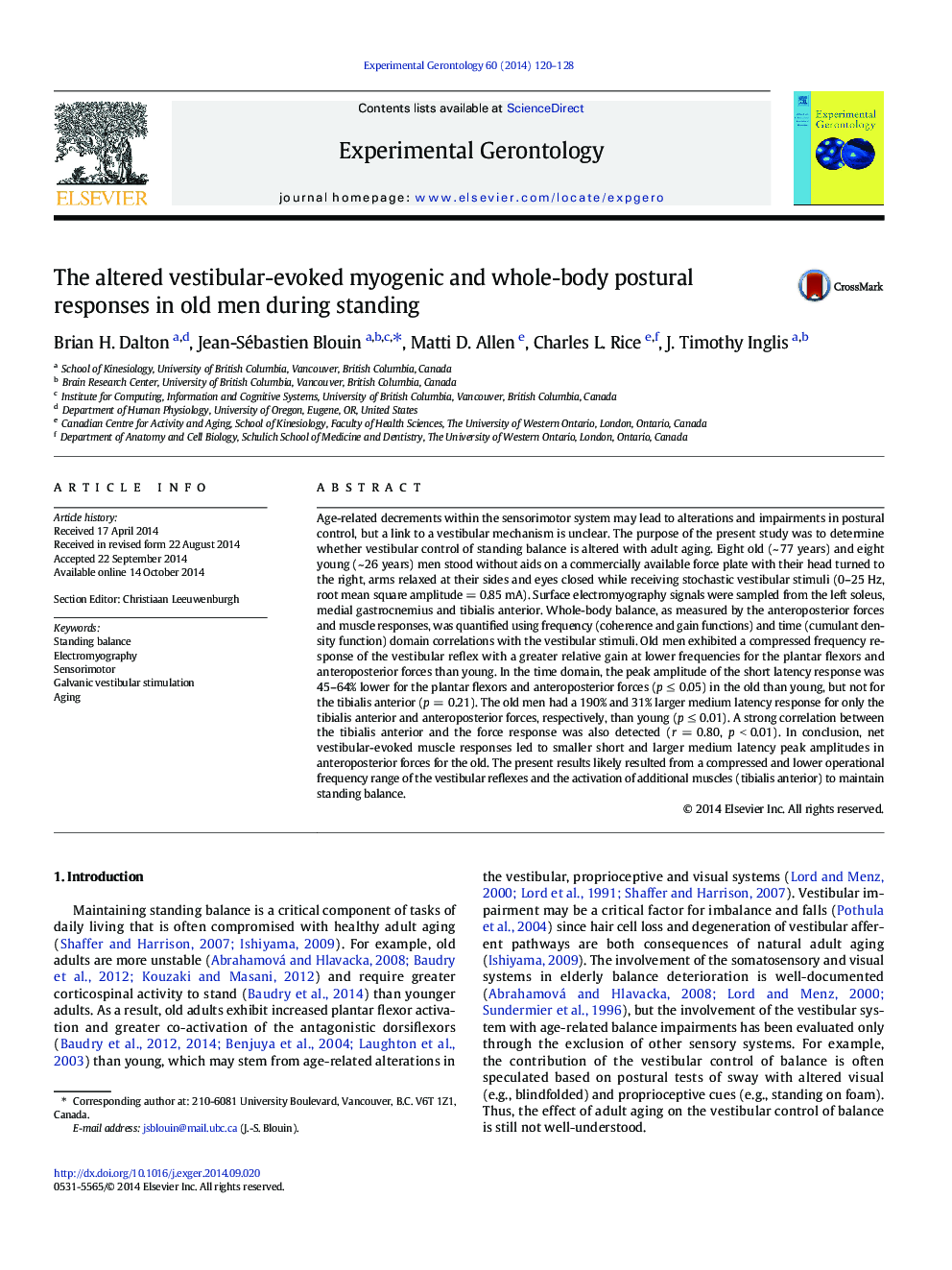| Article ID | Journal | Published Year | Pages | File Type |
|---|---|---|---|---|
| 8263897 | Experimental Gerontology | 2014 | 9 Pages |
Abstract
Age-related decrements within the sensorimotor system may lead to alterations and impairments in postural control, but a link to a vestibular mechanism is unclear. The purpose of the present study was to determine whether vestibular control of standing balance is altered with adult aging. Eight old (~ 77 years) and eight young (~ 26 years) men stood without aids on a commercially available force plate with their head turned to the right, arms relaxed at their sides and eyes closed while receiving stochastic vestibular stimuli (0-25 Hz, root mean square amplitude = 0.85 mA). Surface electromyography signals were sampled from the left soleus, medial gastrocnemius and tibialis anterior. Whole-body balance, as measured by the anteroposterior forces and muscle responses, was quantified using frequency (coherence and gain functions) and time (cumulant density function) domain correlations with the vestibular stimuli. Old men exhibited a compressed frequency response of the vestibular reflex with a greater relative gain at lower frequencies for the plantar flexors and anteroposterior forces than young. In the time domain, the peak amplitude of the short latency response was 45-64% lower for the plantar flexors and anteroposterior forces (p â¤Â 0.05) in the old than young, but not for the tibialis anterior (p = 0.21). The old men had a 190% and 31% larger medium latency response for only the tibialis anterior and anteroposterior forces, respectively, than young (p â¤Â 0.01). A strong correlation between the tibialis anterior and the force response was also detected (r = 0.80, p < 0.01). In conclusion, net vestibular-evoked muscle responses led to smaller short and larger medium latency peak amplitudes in anteroposterior forces for the old. The present results likely resulted from a compressed and lower operational frequency range of the vestibular reflexes and the activation of additional muscles (tibialis anterior) to maintain standing balance.
Related Topics
Life Sciences
Biochemistry, Genetics and Molecular Biology
Ageing
Authors
Brian H. Dalton, Jean-Sébastien Blouin, Matti D. Allen, Charles L. Rice, J. Timothy Inglis,
